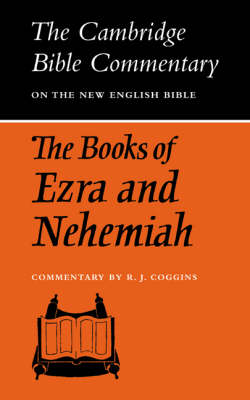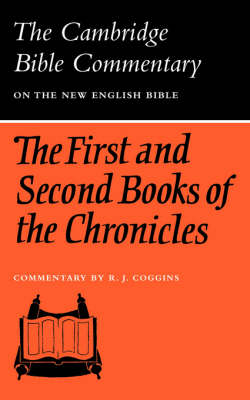Cambridge Bible Commentaries: Old Testament 32 Volume Set
2 total works
Unlike the First and Second Books of the Chronicles, the Books of Ezra and Nehemiah have received considerable attention; partly because their presentation is more attractive, but more importantly because they illuminate a period of history about which very little is known: Jerusalem in the context of the Persian domination of South-West Asia from 539 to 336 B.C. In other respects, however, there are striking similarities between these books, textually, linguistically and theologically: the opening of Ezra repeats the end of 2 Chronicles, suggesting that the works were originally continuous and possibly by the same hand or hands; and there is constantly a theological motivation in the recording of 'historical' events.
The Chronicles, divided into two books purely for convenience, have long suffered from neglect; this is partly because much of their content can be found elsewhere in the Old Testament and partly because their presentation, emphasizing genealogies and ritual ceremonies, has lacked appeal for modern man over the last few hundred years. Yet these books, with their theological interpretation of historical events, are a valuable source of illumination about the Judaean community living under Persian rule about 350 B.C. and its special relationship with Jerusalem and its temple and with God. In his introductory section, Mr Cog ,ins discusses the probable origins and the nature and purpose of 'the Chronicler's' work (whether that of a single writer or a group) and then examines each book separately. In the established style of the series the N.E.B. translation of the text then follows, divided into brief sections and alternating with passages of commentary. The results of recent Old Testament scholarship and modern theological thought are conveyed in simple language to the student and layman.

